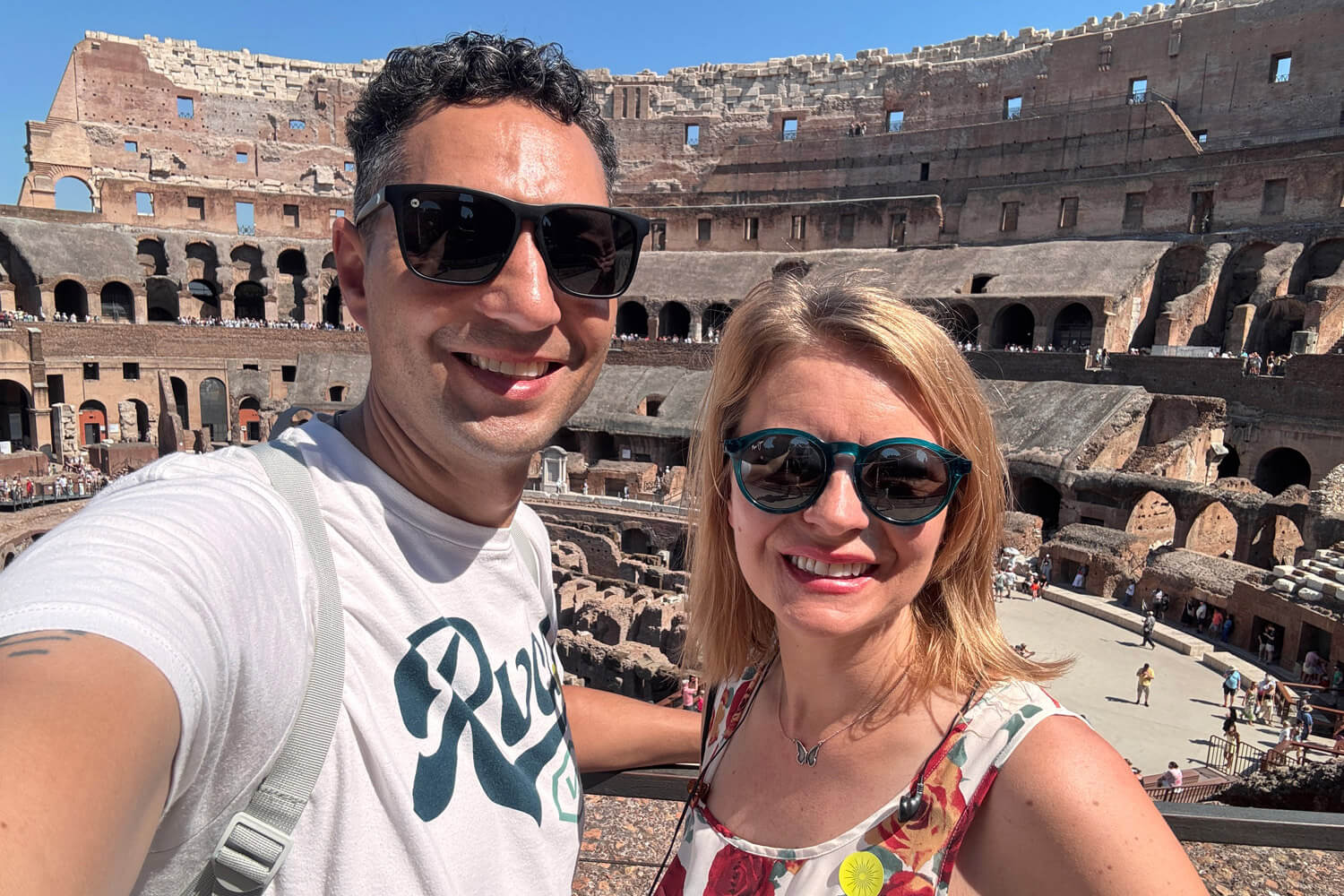It’s Amy for this week. While traveling in Rome this summer, we had the unforgettable experience of doing a guided tour of the Colosseum. In our group was a sweet Australian family of five. About halfway through, panic struck—their oldest son had wandered off.
The mother’s face tightened with fear. “My son is no longer in the group,” she announced. Instinctively, I offered to stay with her younger kids while she and her husband searched for him.
The daughter, no older than nine, looked up at me and said calmly, “It’s brother number one that’s missing.” 🥹 He was about 12 or 13 years old.
Thankfully, within minutes, he reappeared. But instead of relief, he snapped at his mom in that teenager tone: “Why did you leave me?”
She answered with a mix of relief and frustration: “You went ahead of us. I know you were scared… but you don’t have to be a jerk about it!”
(I have to say, this rebuke sounds a lot cuter when said in an Australian accent!) 🇦🇺
And just like that, in the middle of ancient ruins, I was reminded how fear often hides behind anger.
To ease the tension, I shared a similar story—the time our son lost the head to his Spider-Man in a crowd outside Buckingham Palace. As he and I bent down to look for it on the ground, we got separated from Marc and our daughter. When we reunited, it wasn’t hugs and joy from me and Marc either, but rather frustration.
If I could go back to that moment, I think I’d say something more like:
“I’m so sorry we got lost. It was scary for me, and it must have been for you, too. I’m just really glad we’re back together again.”
What's Your Go-To Reaction for Fear?
Fear in relationships doesn’t always look like trembling or tears. Depending on our attachment styles, sometimes it’s irritation, sometimes it’s control, and sometimes it’s dismissal.
Avoiders don’t allow themselves to fear, so they quickly move others past it with phrases like: “Suck it up!” Or if they’re a little kinder, “Be brave, it will be fine.”
Pleasers can be too fearful themselves to allow others to try and possibly fail, so they swoop in and rescue others, robbing the person of the chance to grow.
While Vacillators have fears of abandonment and rejection, which they usually cover with their anger, rather than expressing vulnerability.
The next time fear shows up for you through anger, control, or avoidance—ask yourself: What’s a softer, more productive response?
Hold space for yourself. Be gentle with others. And stay curious.
Because love, at its most secure point, acknowledges, accepts, and comforts fear.
We have 30+ recorded webinars on all kinds of topics—from parenting, to betrayal, to addressing addictions in relationships.
For the price of lunch—$15—you can get the 90-minute audio versions to help you through the struggle you’re dealing with today.
👉 Click here to check out our recorded list of webinars
🌳 Discover Your Attachment Style’s Growth Goals
🙌 Thank You for Growing with Us
Thanks for being part of the How We Love community.
Keep learning, keep loving, and keep growing together.
With love and blessings,
Marc & Amy
Milan & Kay



